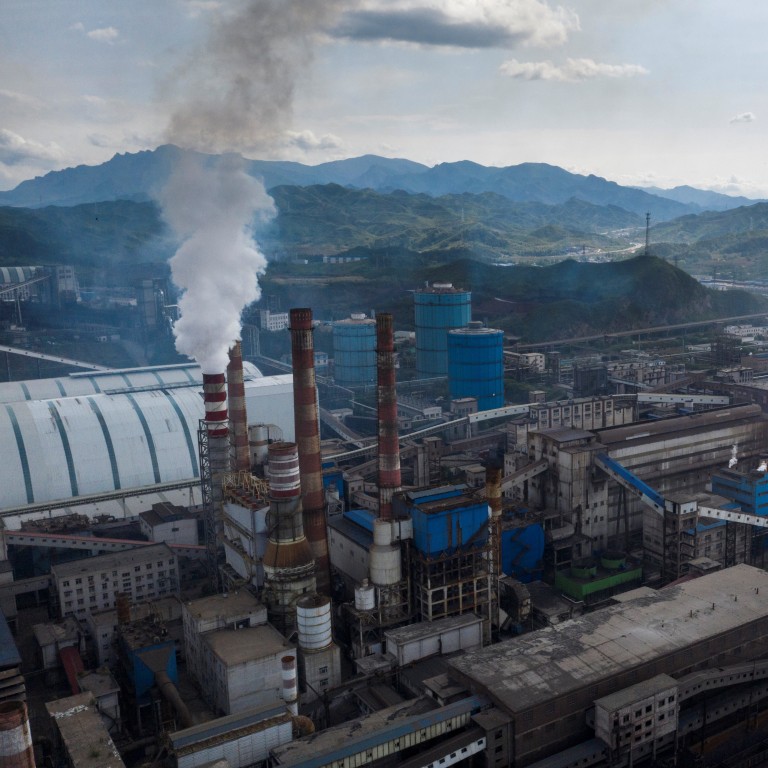
China wrestles with international role as it vows to take lead in realising climate change accord
- Financing still a sticky issue as Beijing commits to making Paris Agreement a reality
Ahead of a United Nations summit next week, China pledged on Wednesday to take the lead in ensuring a key global climate change accord can be put into practice.
But experts said the country’s different international profiles – including being the largest developing country, the biggest economy after the United States, and the biggest greenhouse gas emitter – complicated Beijing’s leadership in the multilateral negotiations.
The UN Climate Change Conference, known as COP25, will be held in Madrid next week and a key goal of the gathering is to bring down barriers in the way to fully implement the Paris Agreement adopted in 2015.
The conference also aims to build ambitions ahead of 2020, the year that countries should submit new and updated national climate action plans, according to the organisers.
On Wednesday, China published an annual report on tackling climate change, in which it underscored its position as the world’s largest developing country.
“As the largest developing country, China continues to work on combating climate change, but it also faces multiple challenges as a developing economy, such as improving people’s well-being, alleviating poverty and controlling pollution,” vice environment minister Zhao Yingmin said.
Climate change poses lifelong risk to children’s health, experts warn
Zhao said that the biggest problem in multilateral efforts to tackle climate change was the lack of political willingness among developed countries to provide support.
He urged developed countries to realise their commitments to allocate US$100 billion each year from 2020 to help the developing world address climate change and other related issues.
Xu Yinlong, chief climate scientist at the Chinese Academy of Agricultural Sciences, said climate finance would be a sticky issue at the upcoming conference.
“Climate finance is one of the toughest problems to solve in the Paris Agreement,” Xu said. “Considering the gloomy economy and domestic opposition [of developed countries], climate finance has become a long-term unresolved problem.”
Teng Fei, an associate professor at Tsinghua University’s Institute of Energy, Environment, and Economy, said financing was an urgent issue because developed countries had not updated their funding commitments for after 2020.
Teng also said there was no disagreement on China’s role as a developing country in climate negotiations, but its multiple “identities” made it hard to define its position in one word.
“For us, we think of China as a big developing country, but for developed countries, they see China as the world’s largest emitter of greenhouse gases and the second-largest economy, so they would consider that China needs to supply climate funds,” he said.
“Developing countries regard China as a leader, but at the same time they think China is different from them because of its economic power.”
‘Climate emergency’ declared by 11,000 scientists as they warn of ‘untold suffering’ if urgent action not taken
Another key issue at COP25 is finalising the implementation guidelines of the Paris Agreement to make the accord operational.
Teng said that among these unresolved issues include how a global trading system for greenhouse gas emission quotas should work.
“Only by [finalising the guidelines] can we fully implement the Paris Agreement after 2020,” Zhao said.

